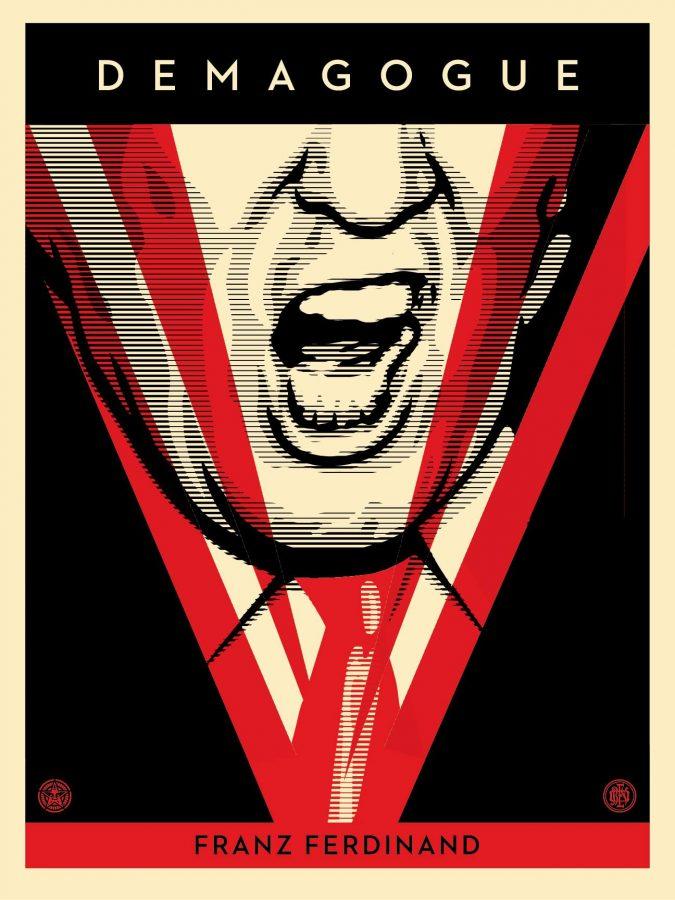Pop is Putting the ‘Polis’ Back in ‘Politics’
Franz Ferdinand contributed the song “Demagogue” to the “30 Songs, 30 Days” project, on its fifth day.
October 26, 2016
As Election Day draws ever nearer, the nation is watching presidential polls and surveys with much anxiety. The question on everyone’s mind is whether or not voters will elect Hillary Clinton, a poised, powerful and competent politician who would become the first female president of the United States, or Donald Trump, a reprehensible caricature of a man with little to contribute to our country or to the rest of the world. Some high-profile musicians, along with most of the reasonable population of this country, are hoping that it will not be the latter. To ensure that we collectively do not condemn the United States to four-plus years of small-handed totalitarianism, bands and singers like Death Cab for Cutie, Aimee Mann, Franz Ferdinand and R.E.M. have begun work on the “30 Days, 30 Songs” project. (Recently amended to the “30 Days, 40 Songs.”)
“30 Days, 30 Songs” is the spiritual successor of the “90 Days, 90 Reasons” initiative, started by performers Dave Eggers and Jordan Kurland. The original project was created with the aim of helping President Obama win his reelection against Republican candidate Mitt Romney in 2012.
Whereas Eggers and Kurland collected 90 essays from a number of public figures for their original project, “30 Days, 30 Songs” uses a more tailored approach. Musicians working on the project write, produce and record original songs as a form of political advocacy, to get their fans and anyone who will listen to turn out to the polls on Nov. 8.
The “30 Songs, 30 Days” project is a great example of how thoroughly entrenched politics has become in our pop culture. That approach, of course, has its downsides. Trump’s apocalyptic campaign likely would not have made it as far as it did if Trump himself was not a celebrity. Name recognition goes very far in the minds of the general population, particularly in politics. To many, the intermingling of pop culture and politics leaves an unsavory taste in their mouths. The sentiment is almost as if the great arts of rhetoric and political maneuvering have been dumbed down to make it understandable for the public.
What those people miss, though, is that politics has never truly belonged to the domain of the well-read and highly-educated. In America, politics shares space with the average voter, and increasingly this space is being shared in popular media. Projects like “30 Songs, 30 Days” are doing what pure politics have long abandoned — trying to get the average person to look, listen and pay attention to decisions that affect them and everyone around them. New music from our favorite bands is just a bonus.
Email Emily Fong at [email protected].













































































































































